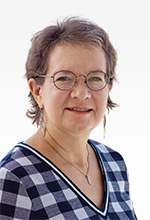Workshop Description |
Scientific writing is a central part of the scientific process as the ability to effectively communicate your research findings is a key requirement for success. Professional scientists worldwide are evaluated by the quantity and quality of articles they publish, and many PG students are now required to write and publish at least one paper before they graduate. Receiving a solid foundation in scientific writing is therefore of utmost importance. In this workshop, I will provide a simple guide to scientific writing, and break down the process of writing and publishing a scientific article into easily understandable steps. I will start by describing the IMRAD (Introduction, Materials and Methods, Results and Discussion) system of formatting scientific manuscripts and then we shall look in more detail at the specific formatting requirements of different journals.
|
Speaker's Bio |

Dr. Sarah E. Webb
Dr. Sarah E. Webb was born and brought up in the UK. She obtained a BSc. (Hons.) in Biochemistry at the University of Bath, and a PhD in Cell Biology from King’s College London. She has worked in Hong Kong for over 25 years, first at the CUHK and then at the HKUST. She is currently a Visiting Scholar in the Division of Life Science at the HKUST, where she pursues her interest in investigating the role of Ca2+ in embryogenesis. She has many years’ experience in writing, proof-reading and editing scientific research articles and reviews, and has taught a number of scientific writing courses and workshops. Dr. Webb also runs a company (EDITXL) to help academics and students in Hong Kong and China proof-read and edit their work.
|